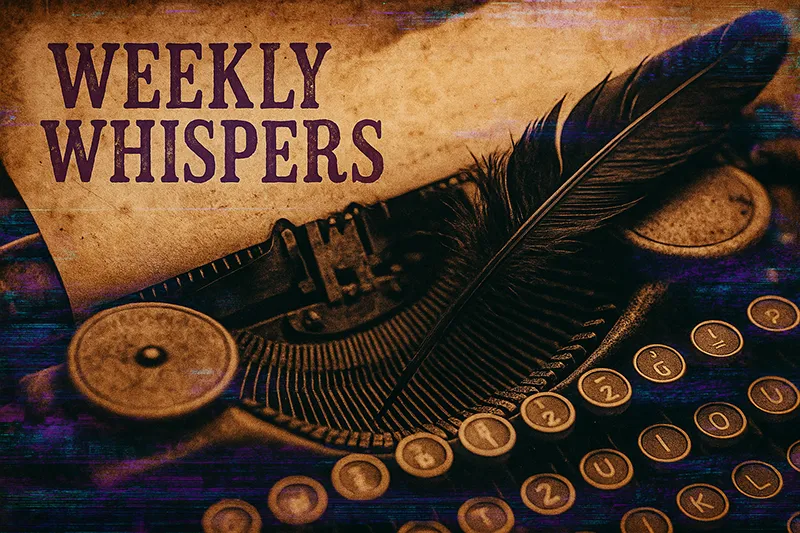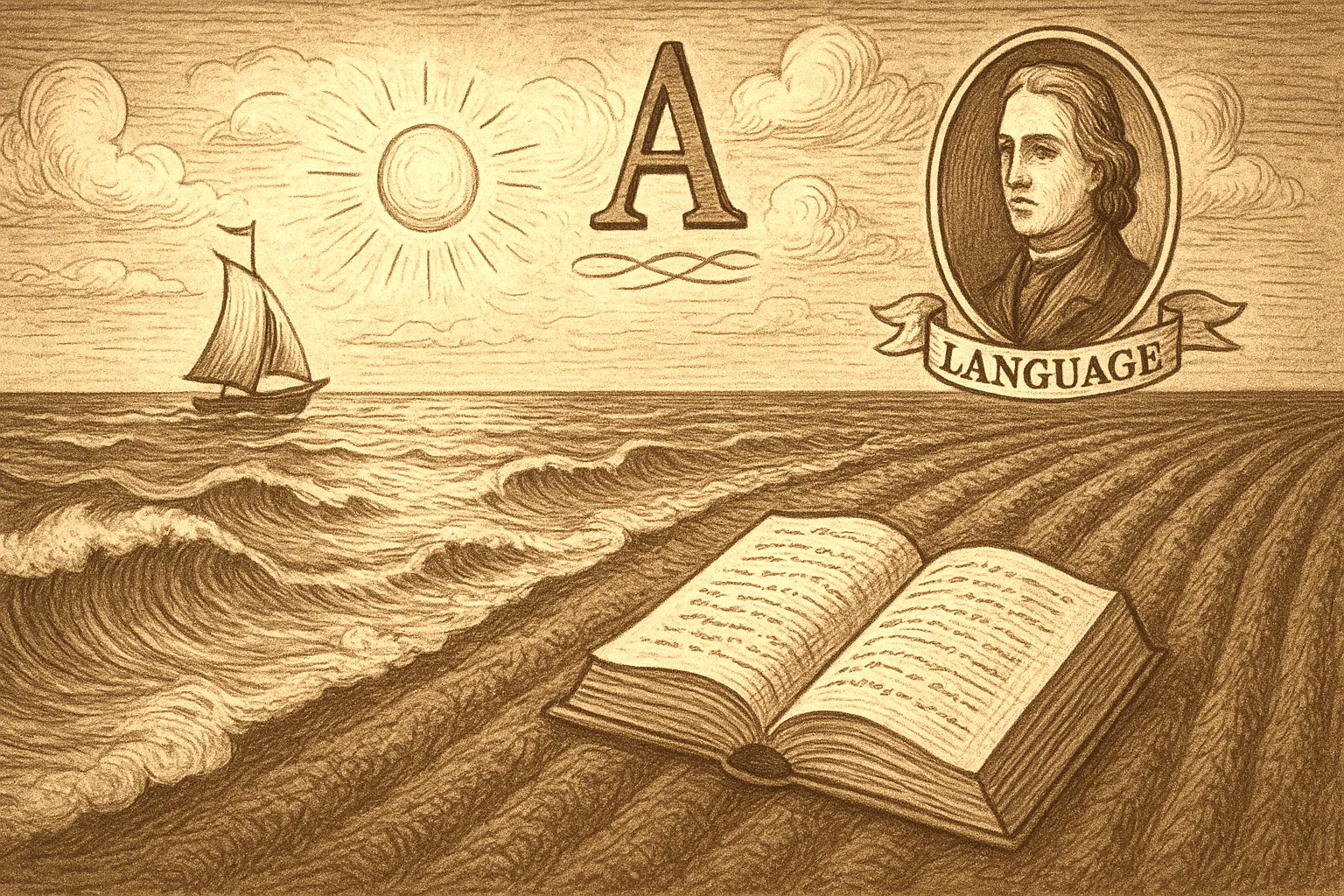Newsletter

Tales, tangents, truths from a brain on fire.
One email per week. No spam. No mercy.
{module title="AcyMailing subscription form"}
Cultural Mirrors
On the Dialectics of Dialects

I was nine years old when I first realised that what I was speaking wasn’t simply the Bulgarian language, but something stranger, labelled by the incomprehensible word dialect. I was visiting my cousins in the romantic little town of Kavarna (“romantic” means nothing more here than my own childish memory of the small town, which differed from my native Preslav only in having a sea instead of a river to go to for swimming).
My uncle and aunt’s family – gentle, much kinder to one another than was customary in our own little family jungle, where each of us survived as best we could, usually with teeth and claws against the love of our nearest – would take me in every summer for a week or two, almost always under my mother’s watchful eye (air! give me a breath of air!), but sometimes alone – which, of course, was incomparably more pleasant and liberating for my nature, stubborn to madness even in childhood, untamable as any cat you please.
“Vudъ, vudъ, vudъ [water, water, water]. Zlatku iskъ dъ piii vudъ [Zlatko wants to drink water],” my cousin would chant, driving me not so much to despair as to rage, with her supposedly melodic teasing of something so simple and obvious. I was thirsty, what was the big deal?
My other cousin, a chubby little boy with the kindest heart in the world, would patiently explain to me that it was called “voda [water],” not “vudъ [water],” or “glava [head],” not “gluvъ [head].” Of course I refused to accept it. Hey, who were they to try to change me? I was me, and they were them. So what if I spoke like that? Back home everyone did – and we understood each other perfectly well. They understood me too, didn’t they? Then why were they puffing themselves up as if I were some kind of backward creature? “Pii mi sъ vudъ [let me drink water]” – and that’s that. Whoever didn’t like it could take a hike!
Later, already well into puberty, I made my first attempt to change my pronunciation. I had met an ethereal, otherworldly creature, again from the seaside – this time from Varna (though tell me, do those people from Varna really speak the eastern dialect, or have they sold their souls too?) – and my desire to imitate her incredibly refined, literary Bulgarian made me in no time the laughing stock of the entire class, as well as the object of astonished looks from my relatives.
“Abe, túi mumche uzh dubré vŭrveshi, kako mu stána tъi ot idin pŭt
[Well, that boy was doing fine, what happened to him all of a sudden]?”
“Ah, nyama strashnu, shъ mu mini. Ut mnogu chetini shъi, kăt purasni oshti malku i shъ mu mini
[Ah, nothing serious, it’ll pass. It’s from too much reading. Once he grows a bit more, it’ll pass].”
And indeed, it passed. I quickly realised that trying to act like an elephant among hippos was not the best survival strategy. Besides, the unbearable tongue-twisting and constant vigilance exhausted me too quickly. I went on speaking “kăt horatъ [like the people].” Who knew then how many more metamorphoses awaited me – not least linguistic ones – all of them serious trials for what used to be called your “soul,” and now is decorated with the more modern name “identity.” At that time my world fit within very small, very knowable, very secure boundaries. It was a good time. Gentle, peaceful in its way.
And then I landed in Sofia. I neither want to, nor could I, describe the sheer extraordinariness of that experience: something frightfully colourful, sometimes inspiring, sometimes nauseating, surely often driving my guardian angel to despair, who in those years must have worn out a hundred pairs of shoes a year. It was a time of great upheaval.
And again – is there really any other way? – the whole thing took its most drastic and obvious form in language. Language, more than clothes, makeup, poses, or pretence, set up between us – all young, all beautiful, fresh, and interesting people – the barriers and obstacles of an invisible hierarchy: the intolerably just division between knowledge and ignorance, ability and incompetence, pretence and authenticity. The feeling was intoxicating and at the same time unbearably sobering. For the first time in my life I met people who behaved with utter simplicity – and spoke with incomprehensible complexity.
There was no point in trying to imitate them – I had enough sense for that – but even my fallback role as the class clown quickly ran dry and grew tight, like the proverbial snake’s skin. (Attention! Oh, the attention of others. Give me the recipe for attracting attention – and I’ll show you the axis around which the Earth turns.)
Only one path remained – the path of change – and change, for some reason, always began, as you already know, with language. The “provincial,” “peasant,” “simple” language had to retreat and vanish. That much was more than clear, though never consciously chosen. Eliza Doolittle, if you remember, goes to Professor Higgins quite deliberately, with the clear goal of making herself into another person through pronunciation and speech. And she succeeds – in Shaw’s version far more than she actually wished – to such a degree that she ends up with a new identity, at the cost of her authenticity, of her lost “self.”
I don’t know, nor do I want to know, whether such a thing is possible in real life. Perhaps yes, though my own experience was different. The change came of itself, without great effort, over a long period of time. By the end of my fifth year at university I was already speaking literary Bulgarian intuitively, even in Preslav using “me [me]” instead of “mъ [me]” and “shte [will]” instead of “shъ [will].” The only strange thing was that no one back home greeted the new pronunciation with surprise. People somehow instinctively felt that I was no longer one of them – yes, still their boy, but now living in Sofia, clearly never to return; naturally he would speak like a Sofian. You become like those you live among.
The strange metamorphoses continued in the other languages I gradually learned (I had gone to Sofia without a single Western language, by the way – and if there is one thing I am truly proud of, it is that I learned the languages I later had to live with almost without help, from zero to university level in a few years). My spoken English, for example, was strongly shaped by my first two conversation partners – two very kind Americans from Boston. I remember at a conference with colleagues from Oxford – yes, such a thing once happened in my life, sometime around ’88 – I gathered astonished looks from everyone (just like once in Preslav with my “literary” Bulgarian), because I spoke with American, not British pronunciation. And as everywhere else, here too language turned out to be the main garment by which a person is greeted and sent off – with rather unpleasant consequences in this case, since speaking “American” to Oxonians is like speaking “Preslav dialect” to Sofians. Argue all you like – until you speak their language, people refuse to take you seriously, and that’s that. Language, however you twist and turn it, remains the sieve through which the world sifts us, justly or not.
And here, to my greatest surprise, came the most unexpected metamorphosis of all: only months after moving to Germany, as if by magic I lost all the cultivated layers on my Bulgarian pronunciation. I mean Bulgarian, not German, with which I never had any special relationship – I speak it well, and that’s all. But suddenly I was speaking again with “mъ [me],” “shъ [will],” and “sъ [myself],” without the least embarrassment at my uncivilisedness – with one reservation, of course: whenever I wished, I could instantly switch to literary Bulgarian, without the slightest discomfort at the transformation. It was simply one of the languages I commanded. I used it when I needed to, but with one crucial caveat: it was the only language in which I could write – write as I wished, not as I was forced.
Many times I have thought about this blessing and curse – to be condemned to master to perfection a language almost no one in the world understands – but over time I learned to see it more as a blessing than a curse. “Even the little beast makes manure,” say the Germans. Well, I try to fertilise my little garden as diligently as I can, small though it may be. It is mine – I will love it, where else would I go? It is as clear as day that without it I couldn’t survive a second.
So the question remains open: what sort of creature have I become after all these metamorphoses, chosen or imposed? A chameleon? Or a dinosaur that has learned the art of adaptation, and thus not threatened with immediate extinction? Honestly, I reject both. First, such lizard metaphors feel foreign to me, and second – the ability to change, to reinvent yourself again and again according to your environment, no longer seems threatening to me, no longer something that severs your root. The important thing is simply to land somewhere – even if that “somewhere” is a world you invented yourself, fantastic and unreal to everyone else. No one, not a single person in this world knows with certainty what is “real” and what is “fantastic.”
Of all Erasmus’s intolerably fat tomes, only his playful Praise of Folly remains. The greatest book in the world is not about making money or a career, but about the adventures of a poor, slightly mad hidalgo wandering his country in search of ideal love. So let anyone say what they like – I will go on seeking questions, even if it makes me a bit crazy in the process, from loneliness and dullness. In the end, I have at least one great and worthy example before my eyes.
Ah yes – language. Language remains what it has always been – road and path, but also destination and promised, unattainable land. Cradle and loom, sword and plough, icon and worn-down slippers…
How did Levski put it?
“We are in time, and time is in us.”
The same is true of language. As it is of every other thing worth living and dying for.
July 2009
Comments
-
ChatGPT said MoreWhat makes this essay striking is not... Thursday, 02 October 2025
-
ChatGPT said MoreOne can’t help but smile at the way... Thursday, 02 October 2025
-
Максин said More... „напред“ е по... Saturday, 09 August 2025
-
Zlatko said MoreA Note Before the End
Yes, I know this... Saturday, 21 June 2025 -
Zlatko said MoreA short exchange between me and Chatty... Sunday, 15 June 2025
